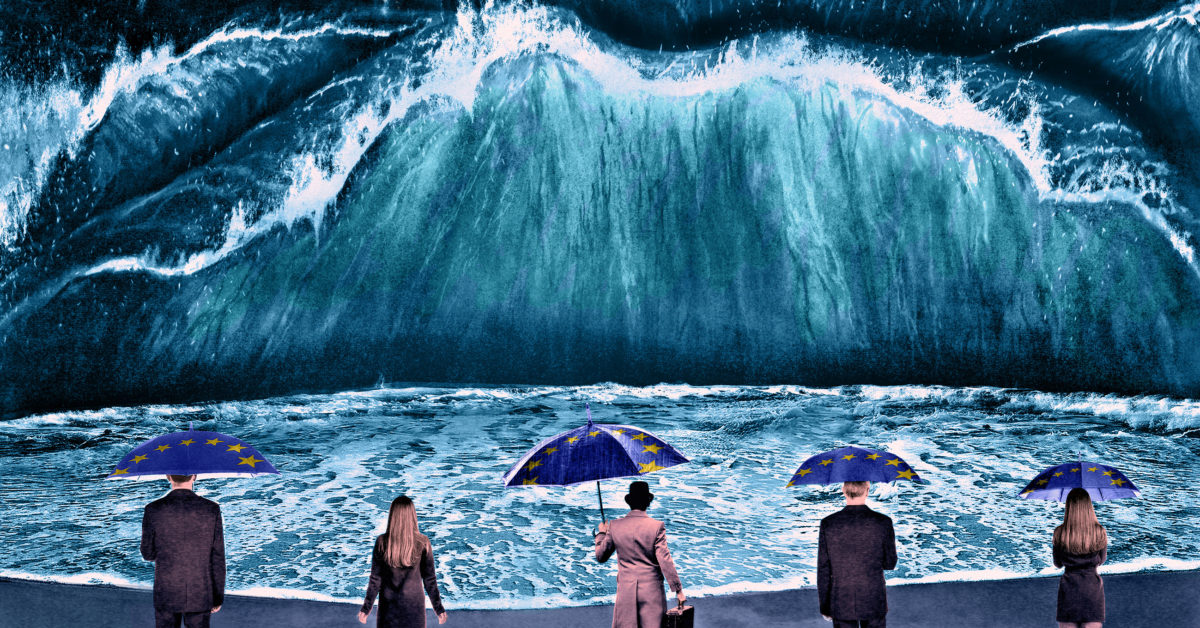Jacopo Barigazzi, Maïa de la Baume, Lili Bayer, Elisa Braun, Hans von der Burchard, Jillian Deutsch, Ashleigh Furlong, Cristina Gallardo, Cristina Gonzalez, Matthew Karnitschnig, Judith Mischke, Barbara Moens, Rym Momtaz, Carmen Paun, Josh Posaner, Eline Schaart, Silvia Sciorilli Borrelli, Zosia Wanat and Zia Weise contributed reporting.
(Suggestion by Dr Constantinos Adamides)
They could have known. They should have prepared. They didn’t listen.
Europe, in early April, remains the epicenter of the coronavirus pandemic — where the outbreak, uncontrolled, morphed into catastrophe. Nearly 50,000 dead. More than 600,000 infected. And the devastation is far from over.
The world’s largest economy is paralyzed. The planet’s most open societies are frozen in fear — with the Continent’s treasured freedoms blamed for accelerating the spread of the most pernicious contagion to afflict humankind in more than 100 years.
It is a crisis with no end in sight. And it is one that Europe’s top leaders failed to see coming.
They failed to hear the warnings that containment would prove ineffective. They failed to heed experts who said no country could fight the virus on its own, failed to perceive that the world’s most advanced health care systems were at grave risk of being overwhelmed. They failed to understand that drastic measures would be needed until Italy — patient zero among EU member countries — frantically imposed travel restrictions that impeded European leaders’ own movements.
“I was crying because I knew the tsunami was ahead of us” — Agnès Buzyn, former French health minister
How Europe once again ended up as a killing field of infectious disease, as it did with plague in the 1300s and influenza a century ago, is less a blame game of individual finger-pointing than a story of collective complacency, and of dangerous overconfidence. Politicians seeking to prevent public panic reassured themselves into inaction — failing to build rapid testing capacity or to stockpile medical supplies over the two months following the virus’ emergence in China.
EU nations, despite their pledge to an ever-closer union, reacted selfishly and chaotically once the threat became evident. Health ministers — four of whom quit or were fired during the crisis — bickered. Governments misled Brussels about their preparedness, then hoarded essential equipment and haphazardly shut their borders, disrupting commerce and stranding citizens.
The European Commission, which has limited power over health matters, sensed danger in January but didn’t convey real urgency until March. And EU leaders lost a crucial week, perhaps longer, focused on preventing a renewed migration crisis at the Turkish border, even as a crisis of far more gargantuan scale had already begun killing dozens of EU citizens in northern Italy.
Outside the EU, the United Kingdom and the United States — once reliable leaders of any response to a global emergency — injected added confusion and unpredictability, as Prime Minister Boris Johnson sought to show Britain would chart its own path and President Donald Trump first denied the virus posed any danger, then blindsided the EU with a unilateral travel ban.
Leaders insist a time will come for lessons learned, that no one could have predicted the scope of the outbreak or the drastic scale of the needed response. But in January, when no one in Europe had yet died of COVID-19, there was still a chance to listen to warnings and recall the lessons of past outbreaks, including a 2015 eruption of MERS — caused by another deadly coronavirus — in South Korea that caused 186 cases and 38 deaths, with estimated damage of $8.5 billion after a limited two-week quarantine.
This account — of how and why those lessons weren’t heard — is based on reporting by POLITICO journalists across Europe, in the U.K. and the U.S., including interviews with senior EU and national political officials, ministers, diplomats, lawmakers, public health authorities and crisis managers […]
Read more at source

